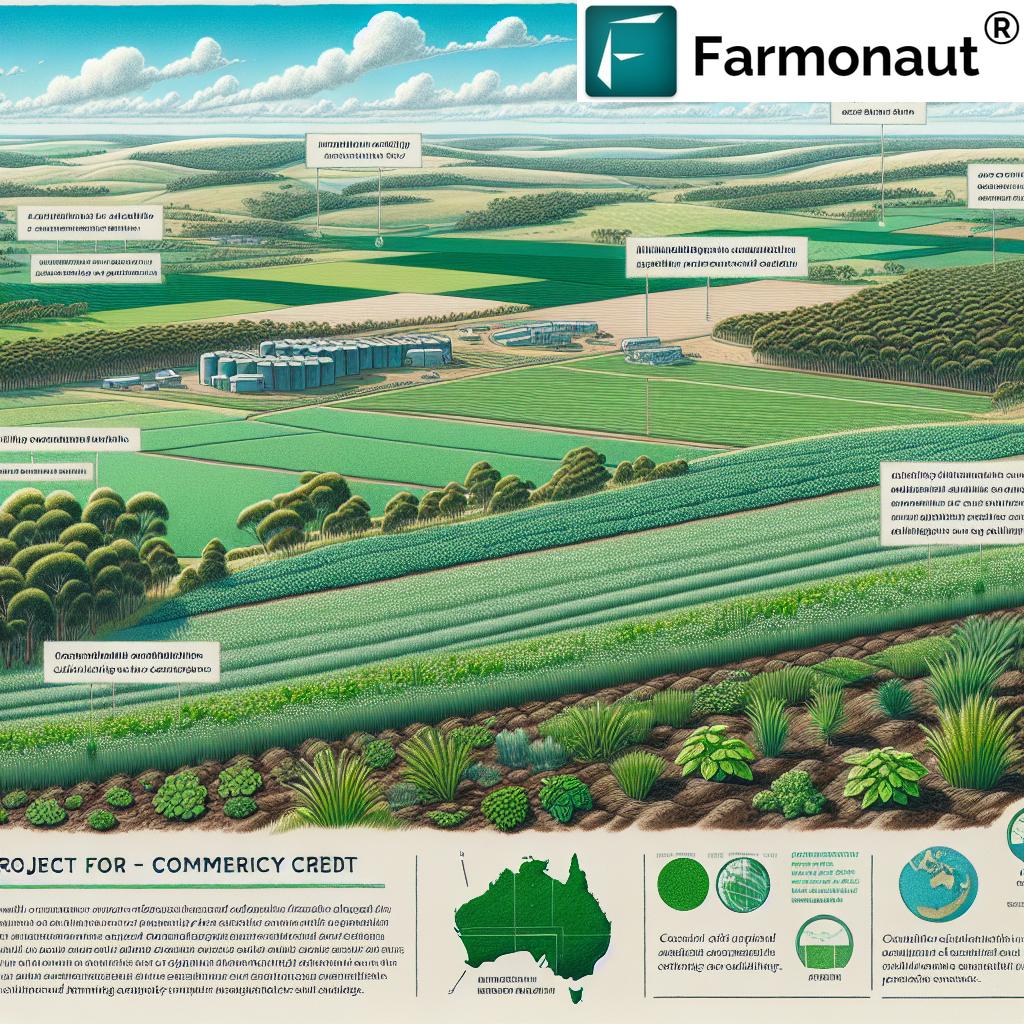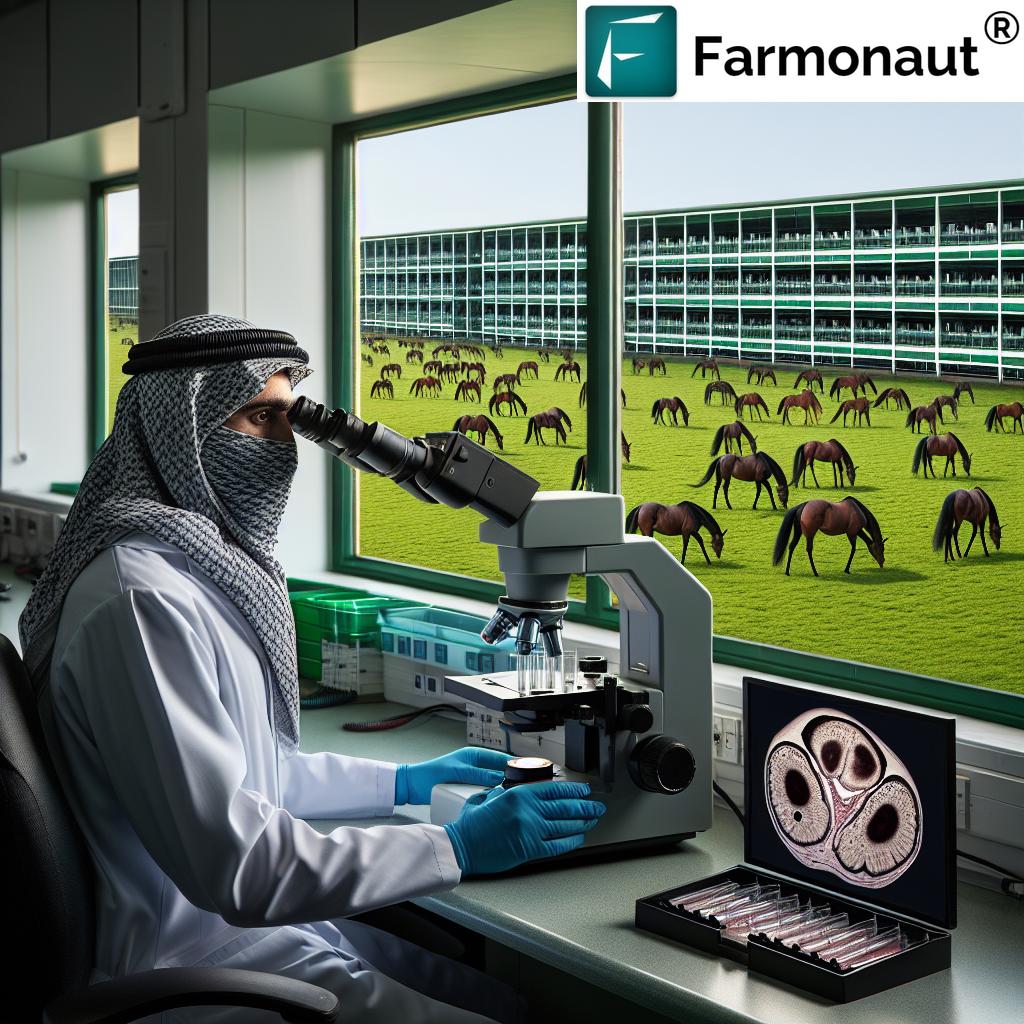Boost Your Farm’s Success: Unlock Agricultural Scholarships and Agribusiness Training in NSW
“Destination Australia Scholarships offer diploma courses in agriculture, covering 100% of essential areas like crop production and sustainable practices.”
In the heart of New South Wales (NSW), Australia, a revolution in regional farming education is taking place. We’re witnessing a transformation that’s empowering farmers and aspiring agriculturists to enhance their skills, grow their enterprises, and contribute to the future of sustainable farming. At the forefront of this change are agricultural scholarships and comprehensive agribusiness training programs that are reshaping the landscape of rural education.
In this blog post, we’ll explore how these educational opportunities are making a significant impact on farmers’ lives and the agricultural sector as a whole. We’ll delve into the world of farm management skills, agricultural scholarships, and the practical training that’s equipping the next generation of farmers with the tools they need to succeed in an ever-evolving industry.
The Power of Agricultural Education in NSW
NSW has long been a powerhouse in Australian agriculture, but the challenges of modern farming require a new approach to education and skill development. That’s where programs like the Destination Australia Scholarships come into play, offering aspiring farmers and agricultural professionals the chance to gain valuable knowledge and practical experience.
- Access to cutting-edge agricultural techniques
- Focus on sustainable farming practices
- Hands-on experience with modern farm management
- Networking opportunities with industry leaders
These educational initiatives are not just about theoretical knowledge; they’re about equipping farmers with the practical skills needed to thrive in today’s competitive agricultural landscape.

The Journey of a Determined Farmer
To truly understand the impact of these educational opportunities, let’s consider the inspiring story of a determined farmer who transformed her small livestock enterprise into a thriving commercial operation. This journey exemplifies how targeted agribusiness training and education can lead to remarkable success.
“One determined farmer transformed her small livestock enterprise into a thriving commercial operation through targeted agribusiness training and education.”
Our farmer, let’s call her Sarah, started with a modest Wiltipoll stud in Guyra, NSW. Recognizing the need to expand her knowledge and skills, she embarked on a journey of continuous learning and development.
Key Steps in Sarah’s Educational Journey:
- Enrolling in Agriculture Diploma Courses: Sarah took advantage of the Destination Australia Scholarships to pursue formal education in agriculture.
- Focusing on Crop Production Planning: She gained expertise in planning and managing diverse crop productions, essential for expanding her farm’s operations.
- Learning Sustainable Agriculture Practices: Sarah incorporated environmentally friendly techniques, ensuring the long-term viability of her farm.
- Developing Farm Management Skills: Through practical coursework, she honed her abilities in managing a larger, more complex agricultural business.
- Engaging in Community and Networking: Sarah actively participated in local farming communities, building valuable connections and sharing knowledge.
This comprehensive approach to learning allowed Sarah to transform her small-scale operation into a commercially viable enterprise, showcasing the power of education in agriculture.
The Role of Agricultural Scholarships
Agricultural scholarships play a crucial role in making quality education accessible to aspiring farmers and agricultural professionals. These financial support systems are more than just monetary aids; they’re gateways to a world of knowledge and opportunities.
Benefits of Agricultural Scholarships:
- Financial support for tuition and living expenses
- Access to high-quality agricultural courses and programs
- Opportunities for practical, hands-on learning experiences
- Networking with industry professionals and fellow students
- Exposure to the latest agricultural technologies and practices
One of the most significant scholarships available is the Destination Australia Scholarship, which has been instrumental in shaping the future of many aspiring agriculturists in NSW.
| Scholarship Name | Eligibility Criteria | Financial Support (AUD) | Duration | Focus Areas | Practical Experience | Networking Benefits | Career Advancement |
|---|---|---|---|---|---|---|---|
| Destination Australia Scholarship | Australian citizens, permanent residents, or international students | Up to $15,000 per year | Duration of the course (typically 1-2 years) | Agriculture, Agribusiness, Crop Production, Sustainable Practices | Extensive hands-on training on farms | Industry connections, alumni network | High potential for leadership roles in agriculture |
| NSW Farmers Tertiary Scholarship | NSW residents pursuing agriculture-related degrees | $5,000 per year | Up to 3 years | Agricultural Science, Rural Management | Summer internships with NSW Farmers | Access to NSW Farmers events and workshops | Strong industry recognition |
| AgriFutures Horizon Scholarship | Full-time university students in agriculture-related fields | $10,000 over two years | 2 years | Agricultural Innovation, Technology in Farming | Industry work placements | Mentoring from industry leaders | Exposure to emerging agricultural technologies |
| Rural Bank Scholarship | Students from rural and regional Australia | $5,000 per year | Up to 3 years | Agriculture, Agribusiness, Rural Studies | Optional rural bank internship | Connection with rural banking sector | Pathway to agricultural finance careers |
These scholarships not only provide financial support but also open doors to valuable learning experiences and industry connections.
Agribusiness Training: Building the Foundation for Success
Agribusiness training forms the cornerstone of modern agricultural education. It goes beyond traditional farming practices, incorporating business management, technology, and sustainability into the curriculum.
Key Components of Agribusiness Training:
- Farm Management Skills: Learning to efficiently manage resources, labor, and finances.
- Crop Production Planning: Understanding the intricacies of planning and executing successful crop cycles.
- Livestock Management Strategies: Developing skills in animal husbandry and herd management.
- Agricultural Business Development: Gaining insights into marketing, sales, and business growth strategies.
- Sustainable Agriculture Practices: Implementing eco-friendly farming techniques for long-term viability.
These comprehensive training programs ensure that farmers are well-equipped to handle the multifaceted challenges of modern agriculture.
The Impact of Regional Farming Education
Regional farming education is transforming rural communities across NSW. By bringing quality agricultural education closer to farming communities, these programs are:
- Empowering local farmers with advanced knowledge and skills
- Encouraging youth to pursue careers in agriculture
- Fostering innovation and sustainable practices in rural areas
- Strengthening the economic resilience of farming communities
The ripple effect of this educational revolution extends far beyond individual farms, contributing to the overall growth and sustainability of Australia’s agricultural sector.
Practical Skills for Modern Farming
In today’s rapidly evolving agricultural landscape, practical skills are more important than ever. Modern farmers need to be adept at:
- Technology Integration: Using smart farming techniques and digital tools for improved efficiency.
- Data Analysis: Interpreting farm data for better decision-making.
- Sustainable Resource Management: Implementing water conservation and soil health practices.
- Precision Agriculture: Utilizing GPS and satellite technology for optimized farming.
- Market Analysis: Understanding global agricultural markets and trends.
These skills are integral to the success of modern agricultural enterprises, and they form a core part of the curriculum in advanced agricultural training programs.

The Role of Technology in Agricultural Education
Technology is playing an increasingly significant role in agricultural education and practice. From satellite imagery to AI-driven crop management systems, farmers are learning to harness the power of technology to enhance their operations.
At Farmonaut, we recognize the importance of integrating technology into modern farming practices. Our platform offers advanced satellite-based farm management solutions that complement the skills learned through agricultural education programs. Through our API and API Developer Docs, we provide tools that enable farmers to apply their learning in real-world scenarios.
Farmers can access our services through various platforms:
Continuous Learning in Agriculture
The agricultural sector is constantly evolving, making continuous learning essential for farmers. Even after completing formal education, successful agriculturists engage in ongoing professional development through:
- Workshops and seminars on new farming techniques
- Online courses in specialized agricultural topics
- Industry conferences and trade shows
- Participation in agricultural research projects
- Engagement with agricultural extension services
This commitment to lifelong learning ensures that farmers stay at the forefront of agricultural innovation and best practices.
The Future of Agriculture in NSW
As we look to the future, the agricultural sector in NSW is poised for significant growth and innovation. The combination of comprehensive education programs, technological advancements, and a focus on sustainability is creating a new generation of skilled and adaptable farmers.
Key trends shaping the future of NSW agriculture include:
- Increased adoption of precision agriculture techniques
- Growing emphasis on sustainable and regenerative farming practices
- Integration of data analytics and AI in farm management
- Development of resilient crop varieties suited to changing climate conditions
- Expansion of agritourism and value-added farm products
These trends underscore the importance of comprehensive agricultural education and the need for farmers to stay informed and adaptable.
Empowering Farmers Through Education
Education is the key to empowering farmers and ensuring the sustainability of agriculture in NSW. By providing access to quality education, practical training, and ongoing learning opportunities, we’re building a stronger, more resilient agricultural sector.
The benefits of agricultural education extend beyond individual farms:
- Increased food security and quality
- Enhanced rural economic development
- Improved environmental stewardship
- Greater innovation in agricultural practices
- Strengthened global competitiveness of Australian agriculture
As we continue to invest in agricultural education and training, we’re not just cultivating crops; we’re cultivating a brighter future for farming communities across NSW and beyond.
Conclusion: Cultivating Success Through Learning
The story of agricultural education in NSW is one of transformation, innovation, and resilience. From small-scale farmers like Sarah to large commercial operations, the impact of comprehensive agricultural training and scholarships is evident across the sector.
As we’ve explored in this blog post, the combination of theoretical knowledge, practical skills, and access to cutting-edge technology is creating a new generation of farmers who are well-equipped to face the challenges of modern agriculture. The Destination Australia Scholarships and other similar programs are not just financial aids; they’re investments in the future of Australian agriculture.
We encourage all aspiring and current farmers to explore the educational opportunities available to them. Whether it’s through formal diploma courses, workshops, or online learning, there’s always room to grow and improve in the field of agriculture.
Remember, in the ever-evolving world of farming, knowledge is as essential as the seeds we sow. By embracing educational opportunities and combining them with innovative tools like those offered by Farmonaut, farmers can cultivate not just crops, but success, sustainability, and a thriving agricultural future for NSW and Australia.
FAQ Section
Q: What types of agricultural scholarships are available in NSW?
A: NSW offers various agricultural scholarships, including the Destination Australia Scholarships, NSW Farmers Tertiary Scholarship, AgriFutures Horizon Scholarship, and Rural Bank Scholarship. These cover different aspects of agricultural education and cater to various career goals in the sector.
Q: How can I apply for agricultural scholarships in NSW?
A: Application processes vary by scholarship. Generally, you’ll need to meet eligibility criteria, submit an application form, provide academic transcripts, and often write a personal statement or essay. Check the specific requirements for each scholarship and apply before the deadline.
Q: What skills are most important for modern farmers?
A: Modern farmers need a diverse skill set including farm management, crop production planning, sustainable agriculture practices, technology integration, data analysis, and business management. Soft skills like problem-solving and adaptability are also crucial.
Q: How does technology contribute to modern farming practices?
A: Technology plays a significant role in modern farming through precision agriculture techniques, satellite imagery for crop monitoring, AI-driven advisory systems, and data analytics for decision-making. Tools like Farmonaut’s platform help farmers optimize their operations and increase productivity.
Q: Are there opportunities for continuous learning in agriculture after formal education?
A: Yes, there are many opportunities for continuous learning in agriculture. These include workshops, online courses, industry conferences, participation in research projects, and engagement with agricultural extension services. Staying updated with the latest practices and technologies is crucial in the evolving agricultural sector.
















